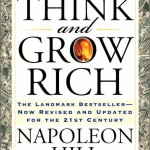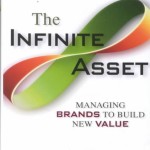“Price is what you pay. Value is what you get.”
Warren Edward Buffett ( born August 30, 1930) is an American business magnate, investor, and philanthropist. He is widely considered the most successful investor of the 20th century. Buffett is the chairman, CEO and largest shareholder of Berkshire Hathaway and consistently ranked among the world’s wealthiest people. He was ranked as the world’s wealthiest person in 2008 and as the third wealthiest person in 2011. In 2012, American magazine Time named Buffett one of the most influential people in the world.
Buffett is called the “Wizard of Omaha”, “Oracle of Omaha”, or the “Sage of Omaha” and is noted for his adherence to the value investing philosophy and for his personal frugality despite his immense wealth. Buffett is also a notable philanthropist, having pledged to give away 99 percent of his fortune to philanthropic causes, primarily via the Gates Foundation. On April 11, 2012, he was diagnosed with prostate cancer, for which he successfully completed treatment in September 2012. [From: Wikipedia.com]
“Honesty is a very expensive gift, Don’t expect it from cheap people.”
Warren Buffett graduated from the University of Nebraska in 1950 with a Bachelor of Science degree. After reading “The Intelligent Investor” by Benjamin Graham, he wanted to study under Graham, and did so at Columbia University, obtaining his Master of Science degree in business in 1951.
He then returned to Omaha and formed the investment firm of Buffett-Falk & Company, and worked as an investment salesman from 1951 to 1954. During this time, Buffett developed a close relationship with Graham, who was generous with his time and thoughts. This interaction between the former professor and student eventually landed Buffett a job with Graham’s New York firm, Graham-Newman Corporation, where he worked as a security analyst from 1954 to 1956. These two years of working side-by-side with Graham and analyzing hundreds of companies were instructive years that formed the foundation for Buffett’s approach to successful stock investing.
Wanting to work independently, Buffett returned home once again to Omaha and started a family investment partnership at age 25 with a starting capital base of $100,000. From 1956 to 1969, when the Buffett partnership was dissolved, investors, including Buffett, experienced a thirty-fold gain in their value per share. Prior to the final decision to liquidate the partnership, Buffett had acquired the unprofitable Berkshire Hathaway textile company in New Bedford, Massachusetts, in 1965. After acquiring Berkshire, Buffett effected a successful turnaround of the company, which focused on changing the company’s financial framework. Berkshire kept its textile business, even in the face of mounting pressures, but also used the company as a holding company for other investments.
“Someone’s sitting in the shade today because someone planted a tree a long time ago.”
It was in the 1973-74 market collapse that Berkshire got the opportunity to purchase other companies at bargain prices. Buffett went on a buying spree, which included an investment inThe Washington Post. The rest is history and today, Berkshire Hathaway is a massive holdings company for a variety of businesses with assets and sales totaling, approximately, $240 billion and $100 billion, respectively, for year-end 2006.
Investment Style
Warren Buffett’s investing style of discipline, patience and value has consistently outperformed the market for decades.
John Train, author of “The Money Masters”(1980), provides us with a succinct description of Buffett’s investment approach: “The essence of Warren’s thinking is that the business world is divided into a tiny number of wonderful businesses – well worth investing in at a price – and a large number of bad or mediocre businesses that are not attractive as long-term investments. Most of the time, most businesses are not worth what they are selling for, but on rare occasions the wonderful businesses are almost given away. When that happens, buy boldly, paying no attention to current gloomy economic and stock market forecasts.”
“Be Fearful When Others Are Greedy and Greedy When Others Are Fearful”
Buffett’s criteria for “wonderful businesses” include, among others, the following:
- They have a good return on capital without a lot of debt.
- They are understandable.
- They see their profits in cash flow.
- They have strong franchises and, therefore, freedom to price.
- They don’t take a genius to run.
- Their earnings are predictable.
- The management is owner-oriented.
[From: Investopedia.com]
“The most important thing to do if you find yourself in a hole is to stop digging.”
12 Life Lessons from Warren Buffett:
1. Lose money and I will forgive you, but lose even a shred of reputation and I will be ruthless. This has been echoed across the business world for years and it applies to us all. Life is too short to cut corners to make an extra buck. Wealth can always be recreated but reputation takes a lifetime to build and often only a moment to destroy. As Warren says, “we will not trade reputation for money.” In the world of blogging, we are writing because we love it. It’s not for the money. This makes reputation more important than anything. Remember this when you are contemplating rushing to monetize your site by filling it with ads, links, etc.
2. The best defense in a tough economy is to add the most you can to society. Your money can be inflated away but your knowledge and talent cannot. No matter the external circumstances, you are always in control of your talent, learning and passion for life. There will always be opportunities for talent. This is the most empowering thing about web entrepreneurship and blogging. Develop those skills with the constant focus on helping others and you will never be without a job.
3. We get worried when people start to agree with us. The best fruit is found out on the limbs. The road less traveled makes all the difference. Make a rule to always stay on the side of the minority in your life’s path and you will be greatly rewarded. Not to mention it will be magnitudes more exciting. These are exactly the topics that people want to read about. Get a little edgy with your posts. Say something fresh. It will stick with your visitors and they’re likely to come back.
4. We celebrate wealth only when it’s been fairly won and wisely used. The goal is not to make money at all costs. It’s easy to forget that in a lot of industries and sub-cultures around the world where everyone is in constant competition. And this can especially be the case when so many of us spend hours upon hours writing and developing our web services for free. Do not rush it and do not get greedy. Help others and the fruit will be there. Wealth is worthless if you’ve destroyed all your relationships to attain it. Take the high road. It’s far less crowded. A bit sad but often true. Makes it pretty easy to stand out.
5. When you are exceptional you jump off the page. There really isn’t that much competition there. Be your own best competitive advantage. Then it doesn’t make a difference what others are doing. You are in control. In blogging, entrepreneurship and life, there are few people really willing to give it their all. Do this and your supporters will love you for it (they will also likely multiply).
6. Do what you’re passionate about. If you do this, there will be few people competing or running faster than you. The best way to be exceptional is with passion! As Tony Robbins says every day of his life, “Live with Passion!” And trust me, life is a lot more fun this way. I cannot think of a better motivator to get you to write for free and love it, than to jump out of bed dying to teach and help others.
7. I think I developed courage when I learned I could deal with hardship. You need to get your feet wet and get some failure under your belt. Courage does not grow on its own. Just like a muscle, it must be constantly worked out and developed. Life begins outside your comfort zone and that’s where courage is developed. Most people don’t succeed because they’re afraid to fail. Failure isn’t that bad anyway. It will make you tougher and more likely to win the next time around. If I had a dime for every time I heard someone tell me about an idea they wanted to pursue or how much they would like to give blogging a shot, without an ounce of action to follow…well, I might own a few more shares of Berkshire Hathaway stock. No one has succeeded without going through their own failures at some point. To try and to fail is much better than to never try. Why not get started early and get some of them out of the way! What’s the worst that could happen? As big wave surfer Laird Hamilton says “If you’re not falling then you’re not learning.”
8. There’s no better way to be happier than getting your expectations down.Most unhappiness comes from misaligned and unrealistic expectations of life. Expect the world of yourself, but expect nothing of the world. Then you cannot help but live your life pleasantly surprised. When I first started blogging a few years ago, I had these huge aspirations of how quickly I’d have a massive following. When it didn’t happen immediately, it got me down. Write and develop your business online with the expectation of it being a charity project to help others. Anything in addition will be icing on the cake.
9. If the only reason you find for doing something is because others are doing it then that’s not good enough. In fact, if everyone else is writing on a topic, maybe that’s the one best to avoid. Tim Ferriss is a master at evading the majority with his 4-Hour Work Week philosophy. Learn to be comfortable on your own path.
10. Decide early in life to make your money by selling things that you really believe are good for the customers. Make this a rule before you write another word to your readers or offer another product to your customers. Life is too short and your reputation too fragile to not have your audience first and foremost in your mind and in your heart. Rules like this make it very difficult to lose.
11. We’ve done a lot of stupid things but we’ve avoided a small subset of stupidity and that subset is important. It’s about avoiding the dumb things.Warren’s success does not come from doing so many things right. It comes from avoiding the things that are terribly wrong. Some say this is two sides of the same coin. It’s not. It requires a fundamental shift in psychology. The stories are endless of people who did a few things right and were massively successful, but then did something stupid that took them back to zero. Before Warren does anything, he and his partner “invert, always invert.” They list every way imaginable in which they could fail at a particular task and then take massive effort to avoid those failures. Do this for your blog or business and the success will come automatically. Always ask yourself, what would disappoint my readers or customers? Then don’t do it.
12. Go to bed a little wiser than when you woke up. This is the crux of the whole meeting. Life is about learning. If you are always learning you can never lose. Keep this as your only rule for the day and the world will be yours for the taking. There has been no better way for me to continue to add value to my readers and followers than this life maxim. Follow it and you will never run out of posts to write or people to serve.
The lessons from Warren are endless. We all stand to learn to be better people, writers and entrepreneurs from what he’s willing to share. He doesn’t charge any money or ask for anything in return. Except of course that we live a life with a burning desire to learn and do all we can to be valuable additions to society. Keep this as the foremost mission of your business or blog and your time spent will be well rewarded. [From: Writetodone.com]
“If you’re in the luckiest one per cent of humanity, you owe it to the rest of humanity to think about the other 99 per cent.”
5 facts to know about Warren Buffett, the multi-billionaire investor extraordinaire.
#1 Warren Buffett bought his first stock at the age of eleven.
-Buffett purchased three shares of City Service at $38 per share. After buying the stock, its value plunged to $27 per share. However, Buffett held on to the shares until they were valued back up to $40. He quickly sold the shares only to find that their value would soar to about $200 per share.
#2 Warren Buffett made $1,200 selling pinball machines in high school.
-Buffett had a knack for making money when he was younger. He purchased a used pinball machine for $25 setting it up in a nearby barber. He later used the profits from the initial machine to purchase two more pinball machines. Within one year, Warren Buffett would sell them to a war veteran for $1,200.
#3 Warren Buffett owns a large number of shares in Coca-Cola, Wells Fargo, IBM, and Walmart to name only a few investments.
-Buffett’s style of investing focuses on the value-investing – buying stocks less than their true value. One of his simple theories is that brand power should hold as much weight as financial measurements when considering investing in a company. His long-term stake in Coca-Cola reflects his theory.
#4 Warren Buffett’s company, Berkshire Hathaway Inc. currently has a value of over $170,000 per share.
-Berkshire Hathaway Inc. is a holding company with over 60 companies under its belt including subsidiaries such as Geico, Fruit of the Loom, and Dairy Queen to name a few. His management style is quite unique, simply writing a letter to each company’s CEO regarding the goals for the coming year. After that, no phone calls or meetings are made to check on them.
#5 As of 2013, Buffett has a net worth of $53.5 Billion
-That puts him as the second richest man in America, behind Bill Gates who himself has a net worth of $67 Billion. In spite of his net worth, Warren Buffett retains a modest lifestyle, living in the same house that he purchased in 1958 for $31,500. [From: Blog.sprinklebit.com]
“Risk comes from not knowing what you’re doing”
If you like this story, CLICK HERE to join the tribe of success-minded people just like you. You will love our weekly quick summaries of top stories, talks, books, movies, music and more with handy downloadable guides, cheat sheets, cliffs notes and quote books.
And, you can opt-out at any time – no strings, promise… CLICK HERE














